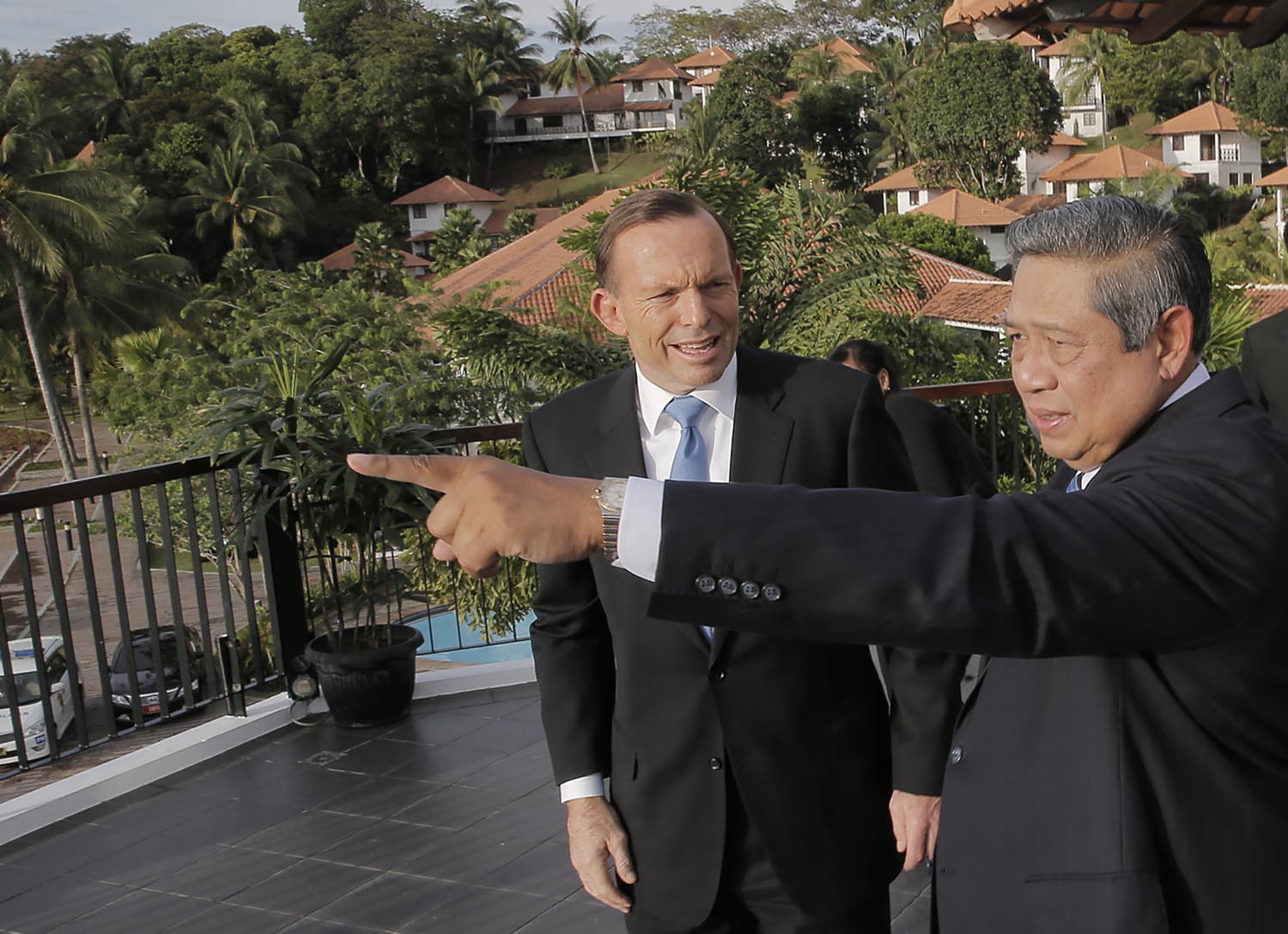 Welcome back for another instalment of ASPI suggests from Washington DC. I’ve found our region’s experts have a lot to offer our American colleagues when it comes to understanding the Asia Pacific, especially Southeast Asia. This week’s instalment showcases this regional expertise.
Welcome back for another instalment of ASPI suggests from Washington DC. I’ve found our region’s experts have a lot to offer our American colleagues when it comes to understanding the Asia Pacific, especially Southeast Asia. This week’s instalment showcases this regional expertise.
In time for PM Abbott’s visit to Batam this week, ANU’s Jacqueline Baker asks, can Australia avoid making the same old mistakes with Indonesia? She explains, even though Indonesia is now a democracy, that doesn’t make things any easier: ‘With Indonesia’s democratisation, suddenly the political terrain got a whole lot more complicated and Australia just doesn’t have the political skills, let alone the white paper to manage it.’ Read her recommendations here.
Meanwhile, Arif Havas Oegreseno says there’s much South China Sea claimants can learn from the recent Indonesia–Philippines maritime agreement (PDF). Former Indonesian Ambassador to Belgium, Luxembourg and the EU, Oegreseno highlights the centrality of UNCLOS and the need to find cooperation on public goods where there are no maritime boundaries.
Over at East Asia Forum, Thuy T. Do analyses the implications of China’s oil rig Haiyang Shiyou 981 on Vietnam’s foreign policy. Although it’s building better ties with the US and Japan as a result of the oil rig incident, Do argues that ‘living next to China for two thousand years has taught Vietnam that nurturing Sinophobia and engaging in military alliances to balance China won’t serve its long term interests.’
Also on Southeast Asia–China relations, Leng Thearith explains why Cambodia can’t afford to be a Chinese proxy, despite the failure to produce a 2012 ASEAN Summit joint communiqué under its chairmanship.
Moving to other regional relations, David Brewster explores developments in the political, security and economic dimensions of Australia–India ties as well as future prospects under a Modi government. He notes, despite positive developments, there remain challenges including uranium sales, recognition of India’s ‘major power status’, differing ideas about multilateral security, and China.
Turning now to US alliances, ASPI’s Hayley Channer recently delivered a presentation at the East-West Center on how Australia, Japan and South Korea could contribute to the US rebalance. She concludes that US allies in Asia could assist by deepening their links with each other, increasing their interoperability, and by investing more in multilateral forums.
As authors of a recent paper on ballistic missile defence, ASPI’s Andrew Davies and Rod Lyon will be watching the test of the Ground Based Midcourse Defence system later this month with interest.
Also from an Australian think tank, John Perryman from the Navy’s Sea Power Centre has written about the Navy’s involvement in D-Day as part of the assault phase of Operation Overlord, codenamed Operation Nepture.
Video
Sticking with the 70th anniversary of D-Day, 93-year old Jim ‘Pee Wee’ Martin boarded a C-47 and parachuted into Normandy as he did 70 years ago with the US Army’s 101st Airborne Division. When asked about the experience, his frank response was, ‘Everybody is scared all the time. Anybody who tells you he isn’t is full of crap. But you just do what you have to do, regardless. That’s the difference.’ Watch the interview and his jump here.
Natalie Sambhi is an analyst at ASPI and editor of The Strategist, and currently a visiting fellow at the Center for a New American Security. Image courtesy of the official website of the President of the Republic of Indonesia.

